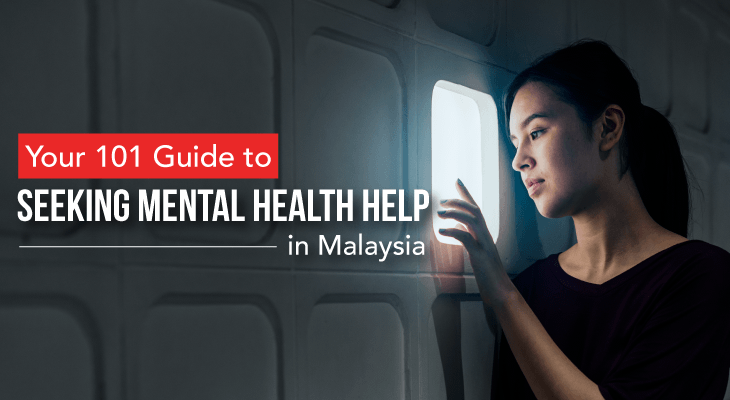Quarantine Survival Tips: 6 Signs of Affected Mental Health
Have you been displaying signs of irritability and demotivation? Your mental health might be affected from this quarantine period! Read more here.
Published 17 Apr 2020
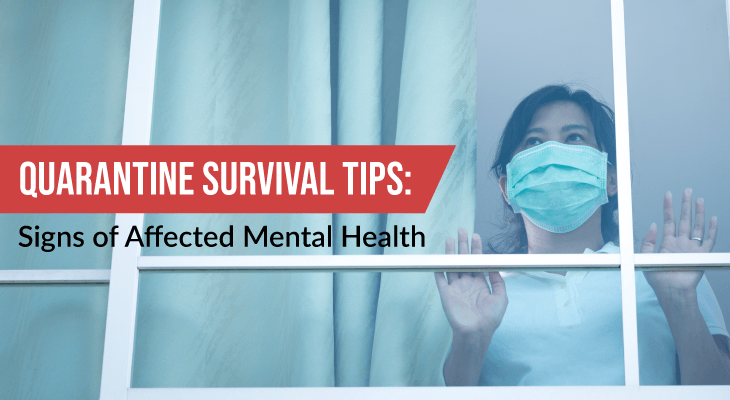
While you might be doing a great service by staying indoors and practising social distancing, it’s no lie that being indoors for an extended period of time can take its toll on your mental health.
Watch out for these signs your mental health might be affected and ways to curb these symptoms!
#1. You feel great loneliness
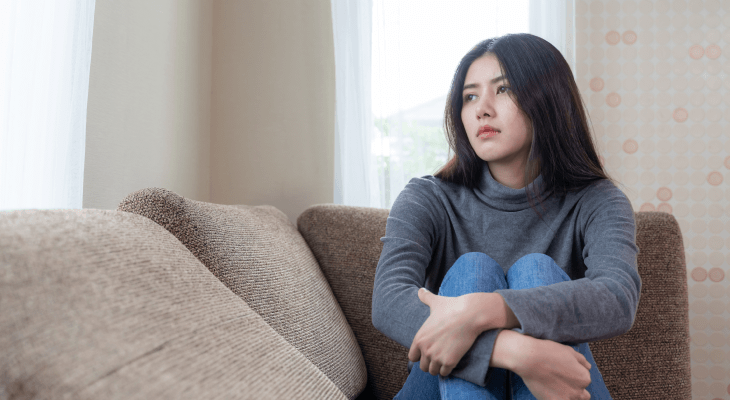
The first few days of quarantine may have gone by in a breeze. From having your own “me” time to playing video games, what’s not to enjoy? But as the days pass being cooped up in your room, you may start to miss your friends. Sure, you’ve hung out with them virtually but you still can’t shake off feeling extremely lonely.
Believe it or not, your great sense of loneliness is not actually caused by being on your own. Instead, it is from the lack of physical intimacy you get from your social relationships. According to psychologists, younger people tend to struggle the most with solitude as the adolescent period is key to shaping your identity. In other words, physically surrounding yourself with your social circle keeps you mentally in-check.
While receiving a warm hug is out of the picture, there’s no harm in sharing what you’re feeling to someone you trust. Being emotionally connected can feel as good as physical affection. Note that your friends are probably on the same boat as you so reach out and reassure each other that you are all in this together! For some fun, you can collectively stream a movie together on Netflix Party or battle your friends with these fun gaming apps.
Vlogging your daily activities through social media like Facebook and Instagram stories is a cool way to keep up your social interaction without trying! After all, the human species are social beings and we are a sucker for bonding over shared interests.
#2. You’re demotivated and don’t feel like doing anything productive
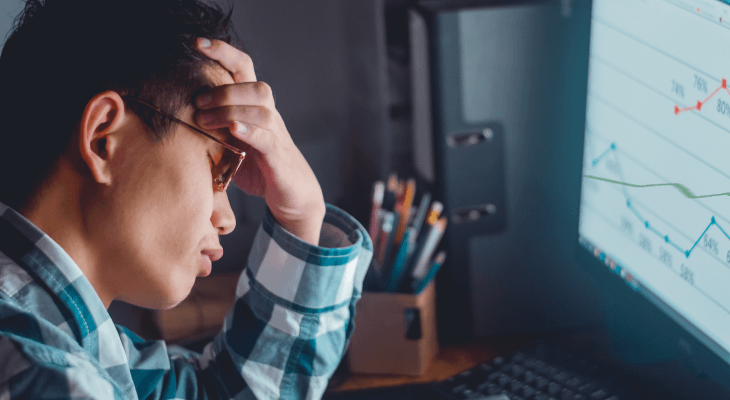
You’ve probably read a plethora of self-help articles and posts that tell you to do fun and creative things during the quarantine period, but no matter how hard you try, you still can’t summon up the effort to do anything productive.
Well, guess what? It’s totally okay! There is an immense pressure to keep yourself occupied when you have ample amount of time to spare. Our rise ‘n grind culture has conditioned us to feel the need to be constantly productive — even when we don’t feel like it! This leaves us feeling guilty when no progress is made.
While your friends are busy choreographing a new workout routine or cooking up a storm with recipes found on TikTok, you can start small by tidying up your room or Marie Kondo-ing your wardrobe. Having a clean space is ideal as it helps to clear your mind so you can feel better. Creating a to-do list is also advisable so you can track your progress, no matter how small the task is.
If you’re struggling with your studies, stop whatever you’re doing and take a breather! Dealing with a workload can be overwhelming. While your pile of assignments won’t work on itself, it’s important to pace yourself in between tasks by creating a schedule or setting an alarm. For an extra hand, these productivity apps can ease your worries — from solving math to resting your mind with simple meditation tricks!

#3. You experience symptoms of anxiety

Thanks to our advanced technology, we can receive information almost anywhere to get news updates and stay in the loop. However, constantly reading about the increasing number of positive cases can ignite some sense of paranoia and anxiety. Next thing you know, your blood pressure is peaking and you’re inducing more stress to those around you.
Being informed is fine but it doesn’t warrant you to become a newsroom producer! Knowing how to manage your news intake is very important in drawing the line between receiving information and letting it consume you. Check for updates once a day and be wary of your news source as rumours often spread like wildfire and it’s easy to feed into panic. So be sure to stick to reliable news outlets (WhatsApp chain messages are not it)!
While your daily routine of commuting to class, working out at the gym and hanging out with your friends may be out the window, that doesn’t mean the end of days! Starting a new routine can be difficult but it’s worth creating one to help manage your days better. So go ahead and make a plan, list some things you’d like to accomplish and check a few things off your list each day. Getting things done can provide a sense of purpose and competency as it gives you something to work towards and something to look forward to each day.
Apply for university with EduAdvisor
Secure scholarships and more when you apply to any of our 100+ partner universities.
Start now#4. You have exhausted your emotional quota
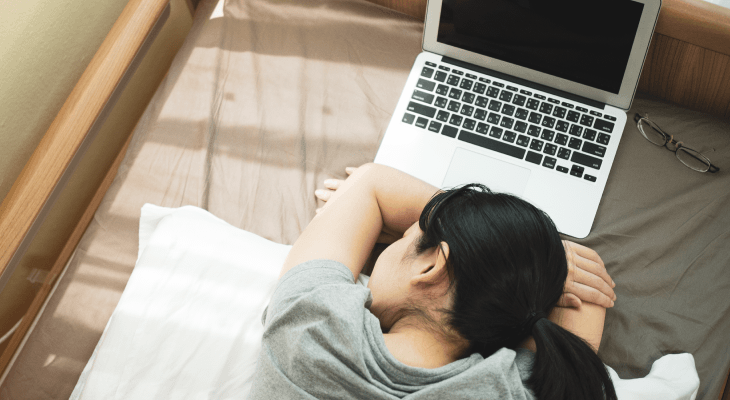
Do you feel less and less enthusiastic about things with each passing day? Are you losing interest in activities you used to enjoy doing? This is one of the jarring ways isolation can take a toll on your mental health.
While being at home means having ample amount of time to start on your long lost hobby, remaining in isolation can slowly decrease your energy levels and leave you feeling numb or empty. Experiencing boredom is normal but having low moods for a long period of time can lead to sadness, feeling numb and is even categorised as a symptom of depression.
Battling these feelings is not as easy as snapping out of it, but there are ways to mitigate feeling blue by keeping yourself occupied with healthy actions. This includes working on a passion project that you’ve been wanting to try, staying in touch with close friends or going on a self-care mode and pampering yourself!
Some days can be difficult but know that you are not alone. Reach out to someone you trust when things get overwhelming and remember to be kind to yourself.
#5. You’re not getting enough sleep
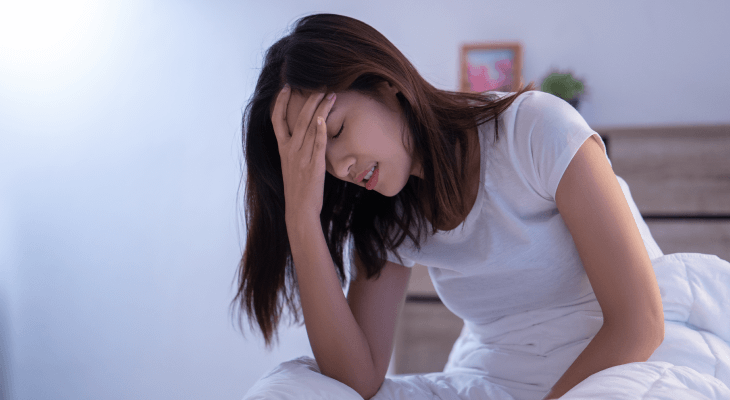
With the quarantine taking its course, there is only so much you can do before spending your days in the comfort of your bed, drifting into slumberland.
However, no matter how much sleep you get, you’re constantly waking up feeling extremely fatigued. Newsflash! You’re either sleeping too much or you have insomnia — a sleep disorder where you struggle to fall asleep, stay asleep or both.
While having an irregular sleeping schedule sounds harmless, research shows that prolonged insomnia can lead to mood irritability, depression, as well as physical health defects such as high blood pressure or stroke. That’s a lot of damage from just… lacking sleep.
There are medical treatments for insomnia but before you resort to medication, try a lifestyle change by practising these steps to good sleep hygiene. Remember that sticking to a routine is more effective than forcing yourself to sleep. However, if your insomnia persists, speak to a doctor as there may be an underlying factor that’s disrupting your sleep.

#6. There is an increased use of substance

Have you noticed yourself taking more nicotine drags than usual? What about pouring yourself one too many drinks? While it's okay to have a coping mechanism, it is important to identify whether your coping strategies are healthy or not.
Substance abuse, be it drugs or alcohol is a larger sign of an affected mental health. Studies show that an increased use of substances can trigger feelings of depression and hopelessness. These unhealthy coping mechanisms can have a harmful effect on your daily routine such as having troubles managing work. It could also affect your relationships too.
While trying to navigate through the outbreak is stressful, opting for a healthier coping mechanism can decrease your chances of falling into the trap. Engage in healthy and relaxing activities to keep your stress at bay such as working out or cooking a meal. If going cold turkey seems impossible, keeping track of your habits can help you get more control over your consumption of substances!
We hope that this information is helpful as you navigate this quarantine period. The interventions may not be a one-size-fits-all but they can be an inspiration for you to start somewhere. Take this time to recharge your batteries and remind yourself that it gets better. After all, we’re in the middle of a global pandemic. It’s okay to not have it all together so continue to take it one second, one hour and one day at a time.





